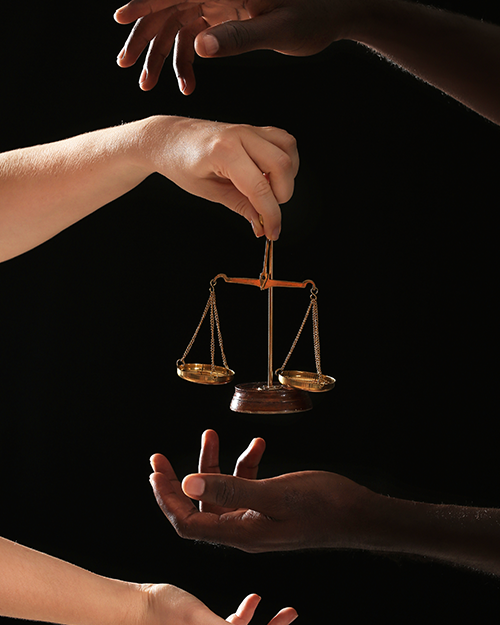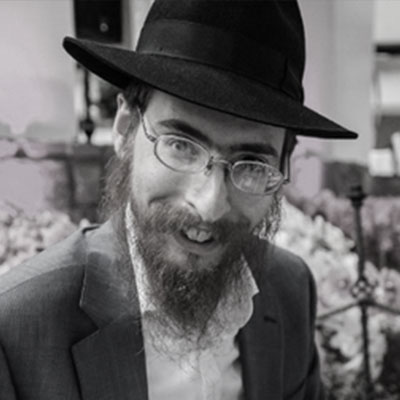Like every timeline we have put together, the history of Jews and social justice is by no means a simple history. Given the loaded political environment in which we live, conversations around social justice tend to be polarizing. We want to take a step back and consider the ways Jews have engaged with social justice throughout history. The long history of these attempts at drastically changing the course of history is a story marked by hope amidst the most despairing circumstances and an undying belief that the world can become better. No matter whether you agree or disagree with the contemporary political clothing of the idea of social justice work, pause for a moment and appreciate the courage it takes to fight for a better future even after suffering the pain of a thousand yesterdays. This is our story, in one way or another. Appreciate it and learn to appreciate your own story.
Biblical Era: Activists in the Garden
From its very origins in the Garden of Eden, humanity was commanded to “work and protect” this world, an injunction that has carried considerable controversy with it. To some, this role invites (or demands of) humanity to protect the natural ecosystem of this world, in the environmental, humanitarian, and economic realms. For others, to “work and protect” refers to humanity’s metaphysical or spiritual task. In later generations, Avraham’s attempt to save the doomed occupants of Sedom, the Akeidah, Yosef’s stewardship of Egypt, and the Jewish slavery and subsequent freedom from Egypt have contributed to the founding narrative of a Jewish ethic of social responsibility.
The laws of the Torah, particularly as later understood by the sages of the Talmud, have received a great deal of attention for their consistent defense of those who lacked agency in the context in which the Torah was first given. Since the Biblical Era, this attention has been complicated. As societal norms have changed, the Torah’s values emerge in a different light and translation, leading to the eternally poignant task of translation that is Talmud Torah.
Prophetic Era: Prophets for Justice
Although they were not always considered through this lens, in recent years the prophets have received greater attention as ardent voices for social and economic reform in their own context. In an era in which wrongdoing, idolatry, and political malfeasance were widespread, the prophets emerged as powerful voices in favor of the marginalized and underrepresented, often receiving harsh treatment for their critiques of the powerful.
Entering the 21st century, social justice has increasingly become a politicized part of the American Jewish landscape in an increasingly divided country.
In the contemporary era, the mission of the prophets – in speaking harsh truths to the powerful and the populace – has become a guiding light to fighters for civic and economic reform. Of course, like everything canonical, this perspective has also received pushback, as part of an ongoing conversation about the legacy of the prophets in a post-prophetic world.
Modern Era: The Golden Age of Activism
The modern history of the Jewish people was in many ways the golden age of Jewish social justice work. Jews of the Modern Era were on the front lines of several concurrent revolutions, often battling with each other in their attempts to build a better tomorrow. Jews were fighting for Bolshevism, Socialism, Communism, Zionism, Diasporism, Capitalism, Anarchism, and a whole host of other isms. From the Bundists to Jewish anarchists like Emma Goldman, and even capitalists like Ayn Rand, Jews were on the front lines of building a new world, on both sides of the Atlantic. The contemporary debates about the relationship between Judaism and social justice found expression at this time as well, as Jews battled over the role of the religious in these causes. Looking back at this rich time of social activism, there is something tragic to this idealism, given the direction that so many of these movements went.
Contemporary Era: The World Today
In the years following World War 2, the Jewish people saw the depth of damage that ‘isms’ could incur, resulting in different outcomes. For some, the trauma of the Holocaust resulted in a far greater dedication to working for the greater good, and the Jewish community in the United States built a huge network of organizations dedicated towards social change. In the religious world as well, many fought for radical change; Rabbi Avraham Joshua Heschel famously marched in Selma for Civil Rights, and Rabbi Menachem Mendel Schneersohn – while largely thought of as a figure who developed religious institutions – also worked towards social change in America, as a recent book shows. For others, the Holocaust and Cold War motivated a turn inwards, towards rebuilding the weakened Jewish community, seeing the traumas of the 20th century as a lesson in the limitations of the work of universal change. Entering the 21st century, social justice has increasingly become a politicized part of the American Jewish landscape in an increasingly divided country.





































